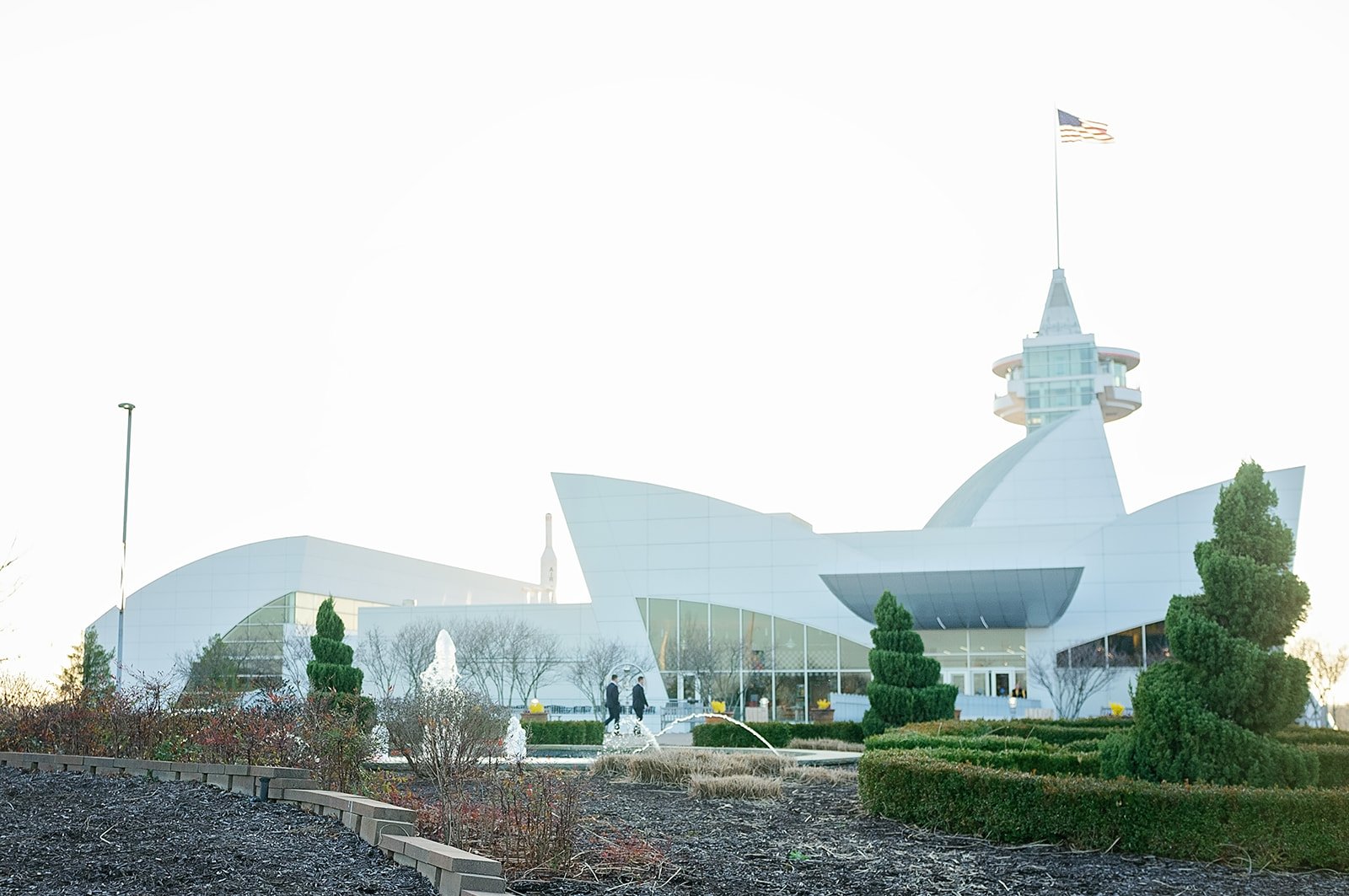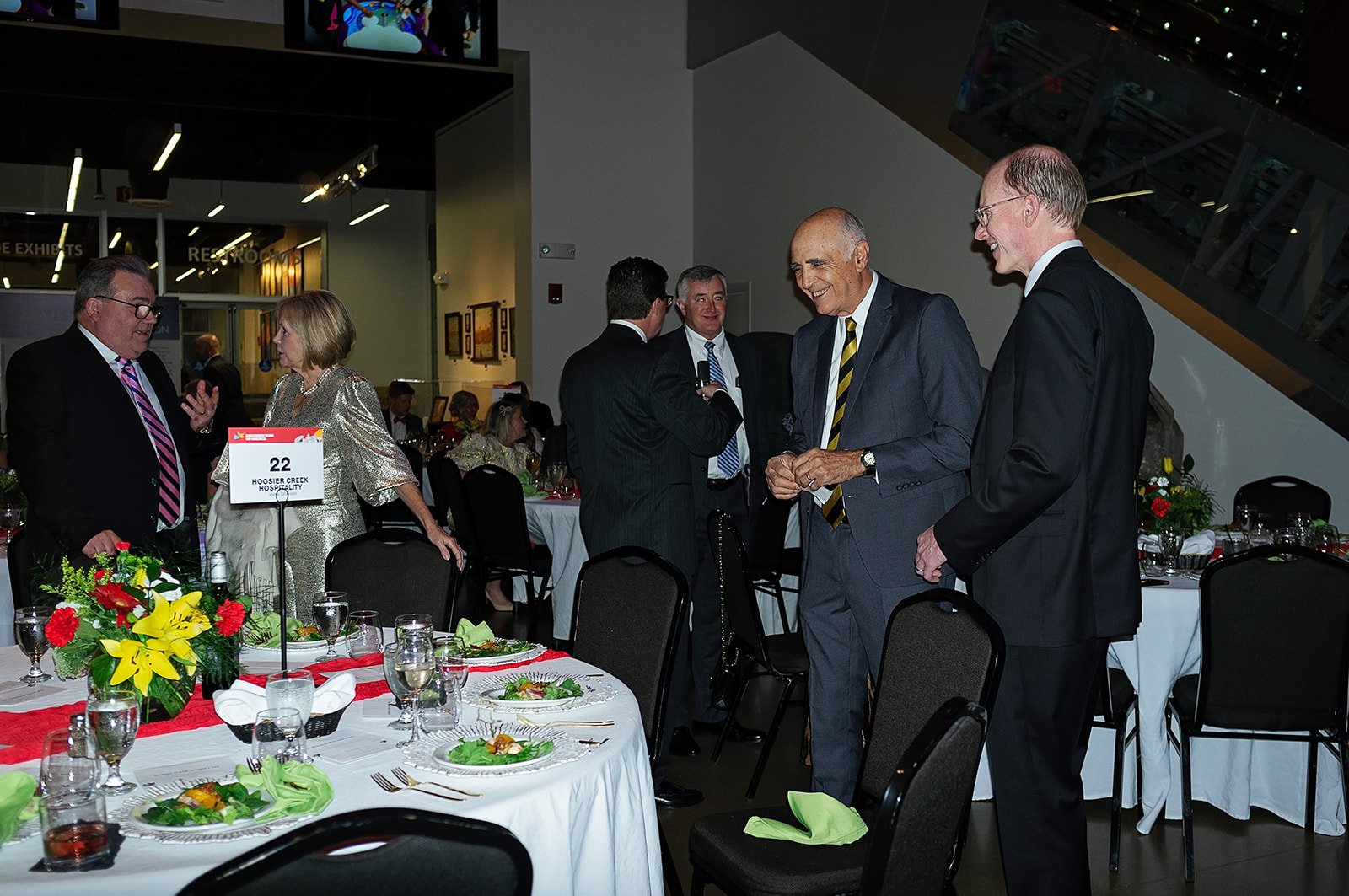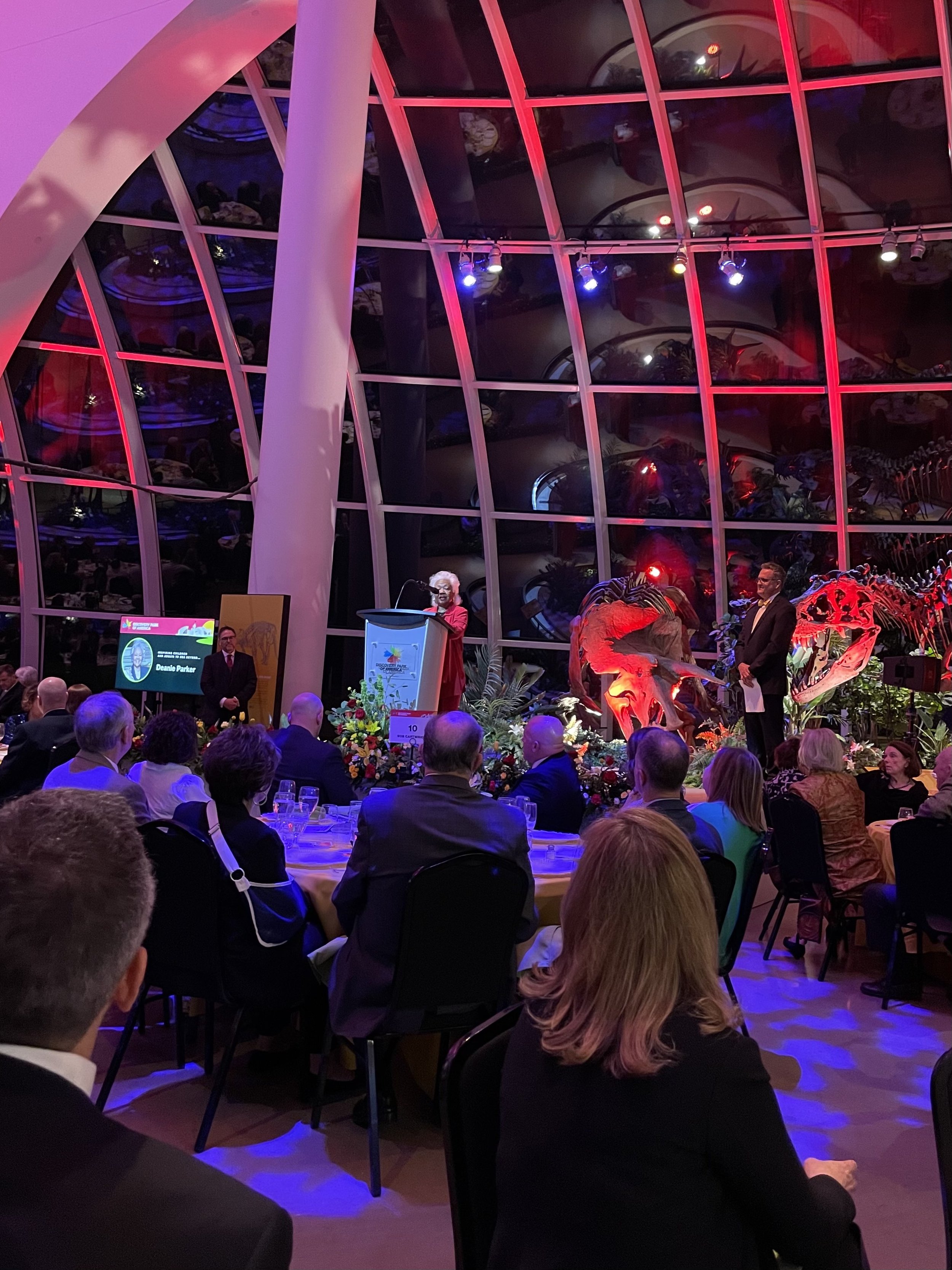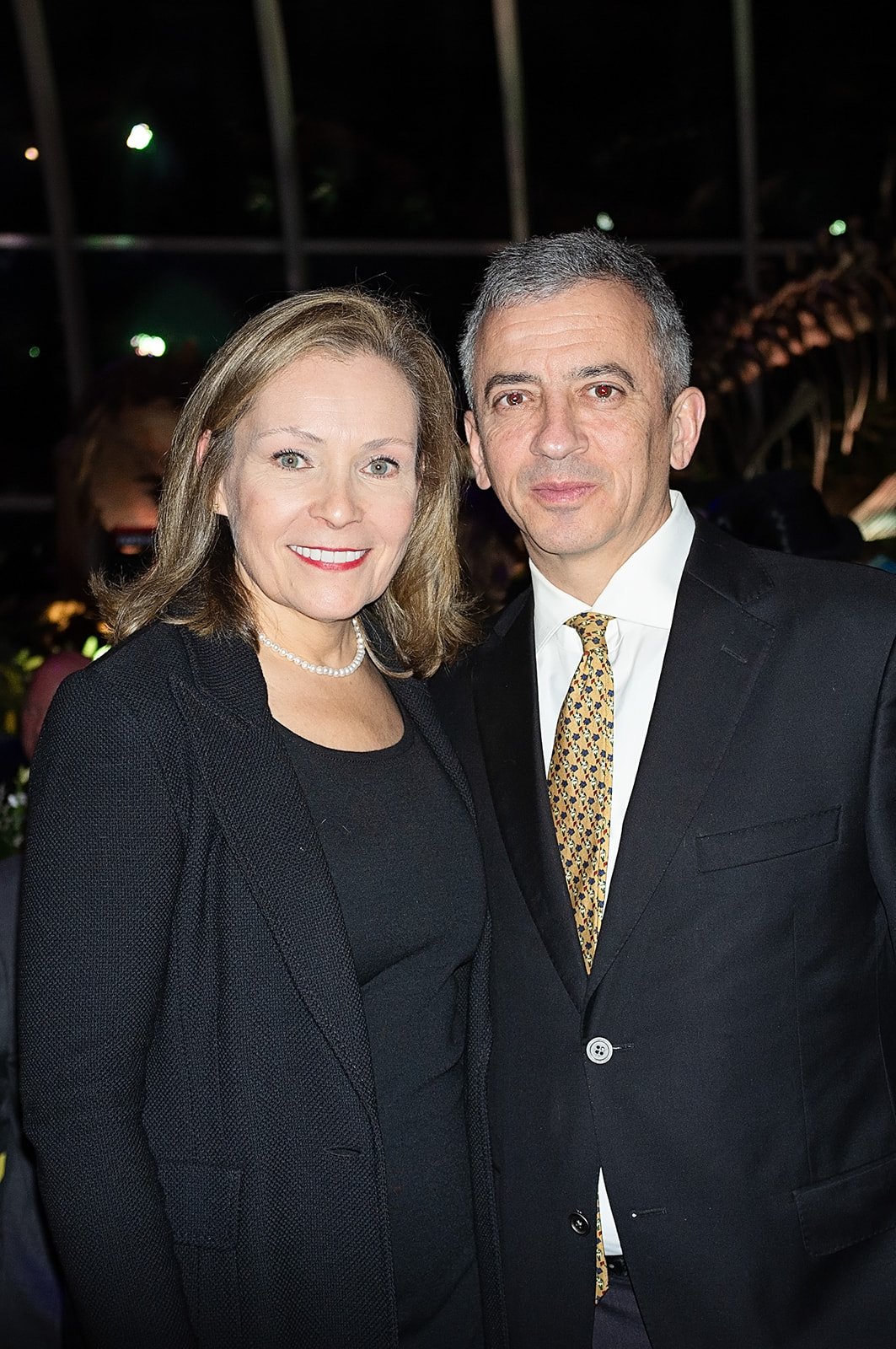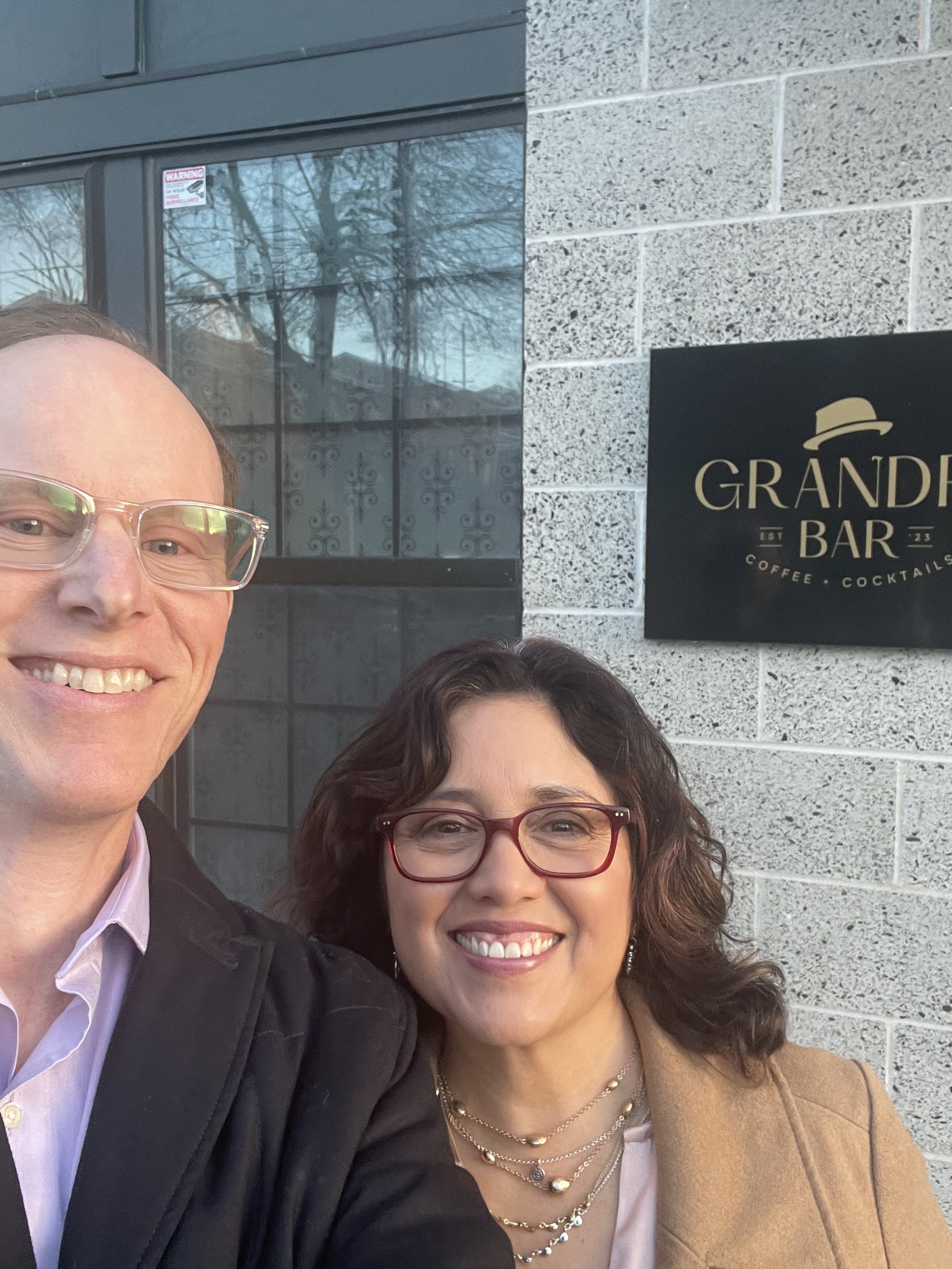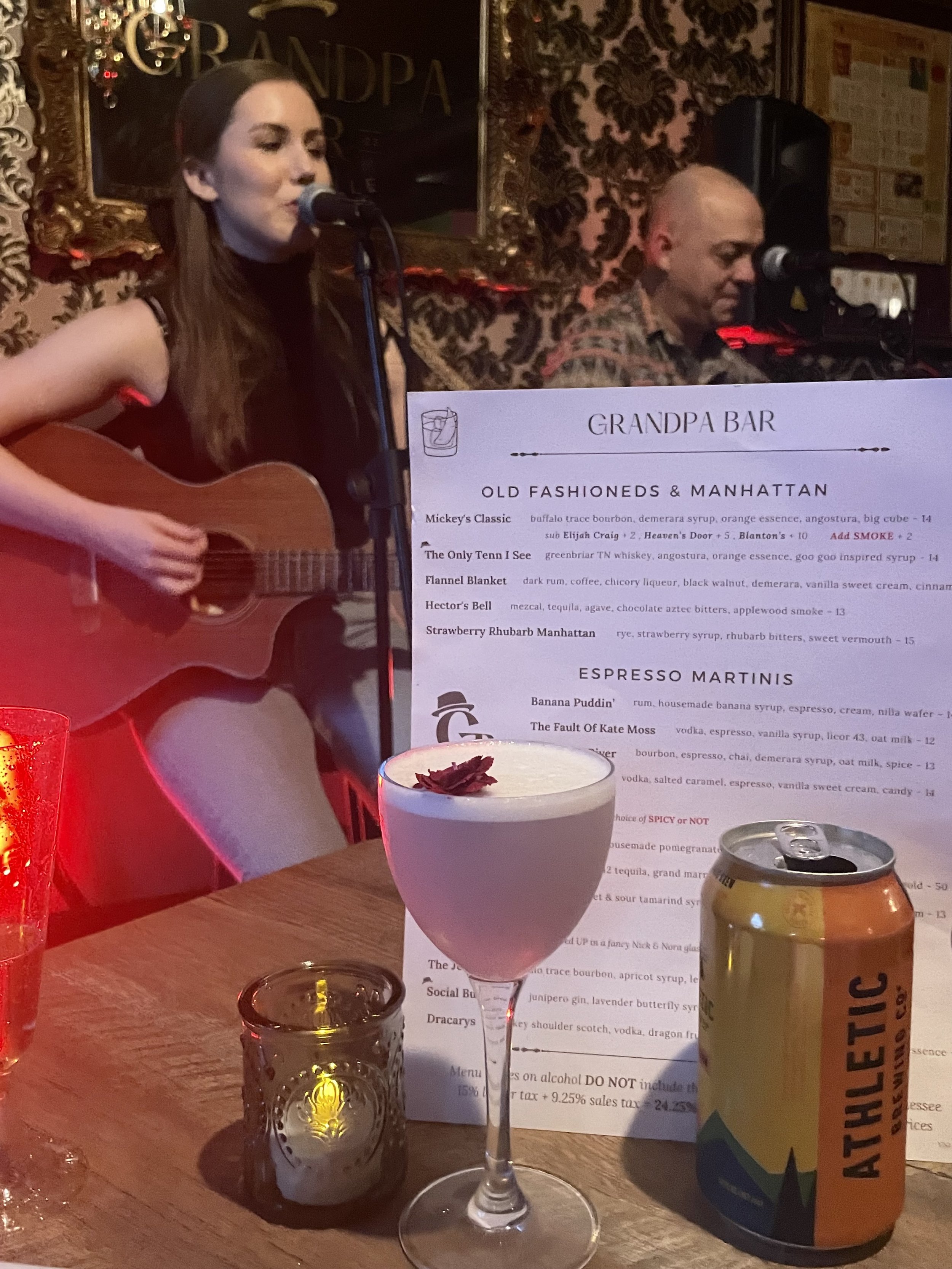Understanding Bonus Depreciation in Commercial Real Estate: A Powerful Tax Strategy for Investors
Smart commercial real estate investors don’t just focus on cash flow and appreciation—they also leverage every tax advantage available to them. One of the most powerful tools in that arsenal is bonus depreciation.
Smart commercial real estate investors don’t just focus on cash flow and appreciation—they also leverage every tax advantage available to them. One of the most powerful tools in that arsenal is bonus depreciation. Whether you're purchasing a NNN retail property, upgrading a grocery store, or improving a hangar facility, bonus depreciation can significantly reduce your tax liability and boost your after-tax returns. And although we are not CPAs, and this shouldn’t be construed as tax advice, we would strongly advise that you speak to your tax advisor about bonus depreciation for the following reasons.
What is Bonus Depreciation?
Bonus depreciation allows investors to immediately deduct a large portion of the cost of qualifying property in the year it is placed in service, rather than spreading the deduction out over many years through standard depreciation. This applies to tangible assets with a useful life of 20 years or less—such as building improvements, equipment, and certain interior renovations.
Why It Matters Now
Under the Tax Cuts and Jobs Act of 2017, bonus depreciation was temporarily increased to 100% for qualifying assets placed in service between 2017 and 2022. This meant you could potentially write off the entire value of certain improvements or equipment in the year you purchased the property or made capital investments.
While bonus depreciation had started to phase down (80% in 2023, 60% in 2024, 40% in 2025, and 20% in 2026), the recently passed One Big Beautiful Bill act restores bonus depreciation at 100%, effective January 20, 2025, and makes the benefit permanent.
How It Works for Commercial Real Estate
Let’s say you purchase a retail strip center or NNN investment and conduct a cost segregation study—a process that breaks out components of the property (like lighting, HVAC, and non-structural interior improvements) into shorter depreciation categories. You may be able to apply bonus depreciation to these components and claim significant upfront deductions.
This can translate into:
Lower taxable income
Improved cash flow
Accelerated ROI
Who Should Consider It?
Bonus depreciation is especially useful for:
High-income investors looking to offset passive or active income
Business owners buying their own real estate and making tenant improvements
NNN buyers acquiring properties with recent or planned renovations
1031 exchange investors seeking ways to improve basis and reduce taxable gain exposure
Strategic Considerations
It’s essential to work closely with your CPA, in conjunction with other advisors such as an engineer, in conducting a cost segregation study to make sure of the following:
The improvements or property components qualify
You have enough passive income to offset with the losses (or strategies to group income)
You understand potential recapture implications if you sell early
Bottom Line: Bonus Depreciation Can Supercharge Your Returns
In a tight market with rising interest rates, every edge counts. Bonus depreciation can turn a good deal into a great one—especially when paired with smart asset selection, tenant credit analysis, and long-term investment planning.
At Chandler James Retail Team, we help investors uncover real estate opportunities that make sense both financially and strategically. Whether you're eyeing your first NNN investment or expanding your portfolio, let us, along with your tax advising team, discuss benefits with you such as bonus depreciation and how they can fit into your big-picture goals.
Reach out today to explore properties and strategies tailored to your investment profile.
What Do Retail and Aviation CRE Have in Common?
When most people think of retail shopping centers and airport hangars, they picture two very different worlds: One is bustling with shoppers; the other humming with aircraft and maintenance crews. Yet, in commercial real estate (CRE), these seemingly disparate sectors share surprising similarities that savvy investors, brokers, and property owners should understand.
Smyrna/Rutherford County Airport
When most people think of retail shopping centers and airport hangars, they picture two very different worlds: One is bustling with shoppers; the other humming with aircraft and maintenance crews. Yet, in commercial real estate (CRE), these seemingly disparate sectors share surprising similarities that savvy investors, brokers, and property owners should understand.
At Chandler James Retail Team & Aviation CRE, we specialize in both asset classes—and here’s why they have more in common than you might think:
1. Location Is Everything
Whether it’s a retail center on a busy highway or a hangar at a regional airport, success depends on strategic location. Proximity to traffic—be it foot traffic or air traffic—drives demand, occupancy, and ultimately, asset value.
2. Long-Term Leases Provide Stability
Both retail and aviation properties often benefit from long-term leases with established tenants. In retail, anchor tenants like grocery stores or national brands create stability. In aviation, fixed-base operators (FBOs) and corporate-aviation users commit to multi-year ground leases and hangar rentals, generating consistent cash flow. And in major hubs such as Nashville’s BNA, there have been a flurry of new restaurant openings in recent years, the majority of which are already well-established local, national, and regional brands.
3. Infrastructure Matters
Retail centers and aviation facilities share a need for specialized infrastructure: parking lots, lighting, utility capacity, and easy ingress/egress are critical for retail, while taxiways, ramp space, and airfield access are essential for aviation. Both require thoughtful design, ongoing capital investment, and sought-after amenities to remain competitive.
4. Niche Expertise Is a Must
Representing retail and aviation properties isn’t for generalists. Each sector demands deep market knowledge, familiarity with tenant expectations, and understanding of regulatory or zoning nuances. For example, retail brokers need to navigate co-tenancy clauses and exclusives, while aviation specialists must understand FAA regulations, airport authority policies, and ground-lease structures.
Tullahoma Regional Airport
5. Value-Add Opportunities Drive Returns
Investors in both sectors seek creative ways to add value—renovating storefronts or re-tenanting a shopping center in retail and expanding hangar space and improving amenities in aviation. These improvements can significantly increase rental income and property value.
Why It Matters for You
Chandler James offers our unique expertise in retail and aviation CRE, giving clients a competitive edge. By recognizing the shared fundamentals—and understanding the details that set them apart—we help owners, investors, and tenants achieve the best outcomes in both markets.
Whether you’re expanding your retail footprint or exploring aviation-property investments, our team is ready to guide you every step of the way.
What is Lee Summit, and Why Does It Matter?
At Lee & Associates, our annual Lee Summit is far more than a corporate gathering. Each year, brokers from across North America come together in Las Vegas to exchange insights, share successes, and strengthen relationships that ultimately benefit our clients.
Absinthe at Caesars Palace
At Lee & Associates, our annual Lee Summit is far more than a corporate gathering. Each year, brokers from across North America come together in Las Vegas to exchange insights, share successes, and strengthen relationships that ultimately benefit our clients.
We’re especially pleased that in June 2026, Lee Nashville will have the privilege of hosting the Lee Summit for the very first time. It’s an exciting opportunity to welcome our colleagues to our city, highlight the Nashville market, and further reinforce the collaborative culture that defines Lee & Associates.
What Makes Lee Summit Unique
Unlike many industry events where networking opportunities can be limited by titles or production levels, Lee Summit is intentionally designed to be open and inclusive. From junior associates to senior partners and presidents, everyone has a seat at the table.
In traditional commercial real estate firms, retreats often separate top producers from those earlier in their careers. At Lee & Associates, we believe the best ideas and connections come when everyone is part of the conversation. This approach not only builds stronger teams but also helps rising talent gain insight and mentorship from industry veterans.
Lee Summit 2025, Las Vegas, Nevada
Key Themes from This Year’s Summit
This year’s summit featured several sessions focused on retail, with an emphasis on collaboration and growth.
We discussed strategies for building and strengthening our retail teams, as well as ways to work more effectively across markets through referrals and partnerships. Attendees shared real-world examples of successful projects that began through a simple introduction or a shared idea. We also explored data-driven tools like Placer.AI and advanced mapping software that help us deliver deeper market insights and more strategic advice to our clients.
The core takeaway was clear: by prioritizing collaboration and supporting one another, we create stronger outcomes for our clients, our teams, and our firm.
Looking Ahead
As we look forward to hosting the Lee Summit in Nashville in 2026, we remain committed to this culture of openness and collaboration. At Lee & Associates, we see connection and teamwork not just as values, but as true business advantages.
Lee Summit embodies this spirit, and we’re proud to carry it forward as we welcome our colleagues to our city.
NRR Podcast Interview
We were live in the studio with Nashville Restaurant Radio last Friday, recording a podcast episode with show host Brandon Styll and his co-host Crystal De Luna-Bogan…
We were live in the studio with Nashville Restaurant Radio last Friday, recording a podcast episode with show host Brandon Styll and his co-host Crystal De Luna-Bogan (Owner, The Grilled Cheeserie). We had a blast with these two, and we look forward to the episode dropping very soon (wherever you listen to podcasts)! To view the previously live session, click play on the image, and be sure to follow NRR for all the latest Nashville restaurant news.
Loss Aversion and Commercial Real Estate
What gets you more excited: Netting $800 a month in rental income while increasing equity in a million-dollar property, or the possibility of losing $4,000 per month, due to an unanticipated vacancy? Decades of research suggest that it may not even be close.
Photo by Aedrian Salazar on Unsplash
What gets you more excited: Netting $800 a month in rental income while increasing equity in a million-dollar property, or the possibility of losing $4,000 per month, due to an unanticipated vacancy? Decades of research suggest that it may not even be close. Losses really do hurt. Not only can they get you in the pocketbook, but they can disproportionately wield psychological pain as well.
I recently reread the behavioral-economics classic, Thinking: Fast and Slow, by the late cognitive scientist and Nobel Prize winner Daniel Kahneman, and it got me thinking about loss aversion and its role in commercial real estate. Loss aversion describes the tendency of individuals to prefer avoiding losses over acquiring equivalent gains. This phenomenon suggests that the pain of losing is psychologically more powerful than the pleasure of gaining. In the context of commercial real estate, loss aversion is playing a significant role in decision-making processes and notably influencing market trends and behaviors.
Overpricing Properties
Over the last couple years, we’ve witnessed sellers who have stubbornly clung to high asking prices, despite buyers’ unwillingness (or just plain inability) to get deals done. According to them, their property should still be worth x, and someone will eventually come along and be willing to pony up. But the fact of the matter is that many investors have tried to make deals pencil at 2023 and beyond pricing, and it just hasn’t worked. When deals have gotten done, they’ve been happening after multiple extensions, retrades, and exorbitantly long due-diligence periods. Part of the problem is that owners perceive price reductions—even when they yield exceptional gains upon disposition—as losses.
Hesitancy to Invest
Under normal market conditions (if there is such a thing), some cautious investors are always going to shy away from opportunities due to the fear of a downtown or uncertainty of returns, which can contribute to a stagnation in market activity. During the runaway inflation and quick uptick in borrowing rates of the last couple years, we’ve seen a disproportionate number of investors sitting on the sidelines, waiting to see what’s going to happen on a macro level. Initially, this made sense. But as stability returns to monetary policy and as prices for some commercial properties begin to dip, eventually there’s going to be an opportunity cost for delaying new investment for too long.
A Costar search at the time of writing yielded multiple office listings in the Nashville market with published cap rates around 7%, and the average cap rate for office sales during the previous 12 months has been 6.9%. And in retail, where you have low inventory and lease vacancy sitting at 3.3%, the cap rates are lower, sure, but even that average has crept up to a 6.2% cap.
Clearly there are opportunities both on and off market to put capital to work in commercial real estate.
Bridging the Gap
As a buyer, you can always insist on waiting to see a couple rate cuts before making a move, and as a seller, you can hold tightly to your price, “until the market catches up.” And as buyer or seller, you can let the fear of loss—loss of the best deal possible; loss of precious dry powder—keep you from making good, solid deals. No one wants to move first. But you know what they say? It’s too soon up until the point that it’s too late. If you’re an investor in buying mode, find a deal that has potential and get engaged while rates are historically normal and competition is thin. And if you’re a seller, quit being stubborn about holding onto 2021 pricing, and dispose of your property at a number that makes sense, based on your investment and what is a clear win for you.
Tifton North
Lee & Associates is offering an exceptional multi-parcel retail development in Tifton, GA in cooperation with William D Bowen.
Chandler James at Lee & Associates is offering an exceptional multi-parcel retail development in Tifton, GA in cooperation with William D Bowen (*Broker of Record, see info below). Strategically nestled in South Georgia, the City of Tifton offers unparalleled access, just an hour north of the Florida line and conveniently located two hours from the East Coast and two and a half hours south of Atlanta. Fun fact: Tifton has a very high ratio of hotel properties for a town of its size, in part, because it is a primary destination for hurricane-evacuation travel. And on a related note, there is a high ratio of interstate exits for a city of less than 20,000 as well: six of them within the city limits and another one just to the south.
Positioned adjacent to Interstate 75, a major U.S. thoroughfare, Tifton North boasts exceptional visibility to passing traffic. It’s also positioned at the northern entrance to Tifton, lending the development its name. There are east-west arteries further enhancing the site’s accessibility, making it a prime location for retail development. The University of Georgia Tifton Campus Conference Center is located less than a mile from the site. Tift Regional Medical Center, a 181-bed regional referral hospital and part of the Southwell health system, is two miles to the east. And then there’s Abraham Baldwin Agricultural College, with its gem of a campus and roughly 4,000 students also located nearby, as well as Tifton’s most affluent residential neighborhood. This site is extremely well located in the section of the city best poised for retail growth.
Tifton North is set to become even more dynamic with the impending construction of a 100-key Homewood Suites, adding to the current users, which are Chicken Salad Chick, Stripling’s General Store, Ace Hardware, and Shell. It will be rich with amenities, including ample green space, plenty of retail, and an event center. The site not only enhances the area’s hospitality landscape but also increases foot traffic for complimentary retail development.
Tifton is the county seat of Tift County, GA (41,344 as of the 2020 census) and is known as “The Friendly City.” And being the county seat, it has an historic Main Street; beautiful old, downtown buildings with one retailer that’s been open since 1910; and all the southern charm a town like this could offer (with great interstate access to boot!).
All of the above make this offering a very attractive site for development. Go to the contact page and reach out to Lee Ann or Miller directly for additional details.
* Broker of Record, phone, address, and license:
D 229.402.2121; 1368 Turner Church Rd; Enigma, GA 31749; GA License ID #61652
Discovery Park of America Gala
There is a place in Northwest Tennessee that will blow your mind. It’s got a rocket ship, an airplane, frontier homes, a giant robot slide, train cars, a stuffed bear, dinosaurs, and much, much more.
Discovery Park of America
There is a place in Northwest Tennessee that will blow your mind. It’s got a rocket ship, an airplane, frontier homes, a giant robot slide, train cars, a stuffed bear, dinosaurs, and much, much more. There’s a 100,000-square-foot museum full of artifacts and immersive experiences, sitting on a 50-acre heritage park. Each year, this unique place sees 250,000 visitors come through its doors—and this in a town of less than 12,000 permanent residents.
A few weeks ago, Chandler James Retail Team attended the Robert E. and Jenny D. Kirkland Discovery Awards Gala and Fundraiser for Discovery Park of America in Union City, TN. We had a blast! It was a wonderful experience, seeing the facility and visiting with many of the attendees. Most significantly, we connected with the folks at Premier Hotel Group and are now working with them on a project in Tifton, GA (more details soon to come).
Lee Ann grew up in Union City, is CEO of the regional supermarket chain E.W. James, and knew a lot of the folks there from way back. I, on the other hand, was getting my first real exposure to Union City, and color me impressed! Please see below for additional photos from a very special night at the museum.
Event Nights at Grandpa Bar
The Saturday after Valentine’s Day, my wife and I went to Grandpa Bar at Apex Marathon Village for a perfectly balanced variety show
Singer-songwriters Grace Day and Brooks West
The Saturday after Valentine’s Day, my wife and I went to Grandpa Bar at Apex Marathon Village for a perfectly balanced variety show: first, singer-songwriters Grace Day and Brooks West entertained the crowd with tunes ranging from the poignant to the quirky and irreverent; then, a lineup of a half dozen hilarious standup comics all killed. Have you ever been someplace and as soon as you stepped inside, you felt as if you’d completely left the outside world behind and were now Someplace Special? The theme was “Cupid’s Variety Show.” The lighting, the music, the tables, the just-right buzz of conversation—those delicious cocktails and mocktails . . . It was, indeed, a night to remember.
Please follow Grandpa Bar on Instagram for upcoming event nights. This is a great date or night-out-with-friends spot in a Nashville neighborhood that’s really going to be taking off during the next couple years. Lee Ann James and I are excited for our client, Grandpa Bar Owner Mike Rosenthal, and for Marathon Village, which now gets to claim this gem of a place as its own. See below for more photos from a fun evening!
Suburban Strip Mall Investment in Greater Nashville
Middle Tennessee is a great place for real estate investors to focus on strip malls.
Franklin, TN
Middle TN Strip Malls as Investments
Middle Tennessee is a great place for real estate investors to focus on strip malls. Throughout 2023, the area’s suburban strip mall investments displayed impressive growth, driven by multiple factors. The current vacancy rate for Greater Nashville’s strip centers is an amazingly low 1.7% and market rent at strip malls is in the high $20s per SF. Even in emerging, more rural submarkets such as Robertson and Dickson County, you’re now seeing retail asking rents in the high teens and vacancy rates even lower than Nashville proper. (Costar)
One of the key drivers of success for suburban strip malls in the Nashville area is the city's continuous residential growth. Jobs keep coming; people follow the jobs; and cities and towns around Nashville continue to expand. SmartAsset looked at population data for the nation’s 344 largest cities, and two in the state of Tennessee ranked within the top 25 for fastest growing: Murfreesboro (number 16) and Clarksville (number 25). Prime suburban locations such as these, strategically situated near major traffic arteries, have experienced heightened growth and consequently leasing activity. The rental rates for strip malls in these sought-after areas have surged, but “fixer uppers” are still out there.
Adam Tepman, the artist formerly known solely at StripMallGuy, gets it. In an interview with Kyle Mathews late last year, Tepman mentioned he likes to say his “favorite anchor is a busy street.” And when people bug him about where are the credit tenants, he answers “the credit is that’s the person’s college fund for their kids.” These strip malls dotting small-to-medium sized towns across the country are the lifeblood of their communities. Yes, there are some national tenants in the mix as well, but for the most part, this is small-business America.
Retail Post-Pandemic
Post-pandemic, strip center investment is especially attractive, because after a time of people being told to stay home and away from others, they are now more appreciative than ever of the in-person shopping experience. They may still be doing hybrid work, but on their lunch break and afterwards, they are hitting the stores.
And, man, are they eating out! According to the Site To Do Business, in the Greater Nashville area, over 40% of adults said they go to a fast food restaurant 9+ times per month. Chaching, Mr. and Mrs. Subway Franchisee!
So, as you are considering your next real estate investment, along with residential flips, land banking, and other popular choices, think about going just a little bolder and purchasing your first small strip center. Explore partnering with someone who’s been there/done that and can help you look for ways to add value and improve rental income over time. This can be a wonderful source of income for many years to come.
Restaurant Spaces
The restaurant biz in Music City has been anything but dull of late . . .
17th + Grand, soon to be home to Nashville’s first High Point Coffee location
The restaurant biz in Music City has been anything but dull of late. During covid, savvy fast-casual operators did quite well, accommodating people who were cooped up and wanting easy meal solutions and a quick break from their own surroundings. For sit-down dining, however, it was a different story, and some good restaurants sadly went under. Then came high inflation. And labor struggles. No one ever claimed the restaurant business was easy, and that’s been painfully apparent these last several years.
And yet, new concepts continue to enter the market. And previous success stories continue to expand. No one ever said that life was gonna be easy, but where there’s a will—and a handful of really good recipes—there’s a way.
The greatest challenge for restaurateurs these days is rising expenses. Even in outlying areas such as Bellevue and Donelson, the monthly passthroughs alone are in the thousands at triple-net properties (which the majority now are). Base rents have gone up considerably in recent years as well. As reported in our last post, the Greater Nashville average retail rent is $28 per SF, but at midtown and downtown properties, the asking rents are from the mid $30s to low $40s per SF, and recently we received confirmation that there are actual, not asking, rents being collected in the 12 South neighborhood that are above $100 per foot.
Grandpa Bar at Apex Marathon Village
All of that stated, unlike a couple years ago, there are a fair number of second-gen restaurant properties now available for lease. To be exact, 26 came up during a recent Costar search (filter: retail; secondary type, restaurant), and we know of at least a couple that for whatever reason weren’t included in this list. Therefore, you have to figure that market forces will kick in sooner or later, especially at some of the older and early-emerging properties, and for the patient, there will be deals.
The following is a quick recap of some Nashville area-based restaurant closings, news stories, and openings/expansions during the latter part of 2023 and the kickoff to 2024. If you are in the restaurant business and Chandler James Retail Team at Lee & Associates can be of help, please see our info on our Contact page.
Closings:
McCabe Pub on Murphy Road is shutting its doors after being in business for over 40 years. Nashville’s Dean family owns the property, and according to the Nashville Post, Avison Young will market and list it for lease, but at the time of writing, there is still no information on Costar.
East Nashville vegetarian favorite Wild Cow closed its doors at the end of December, after a 14-year run. As reported in the Nashville Business Journal, rising rent and food costs were cited by the restaurant as the primary reasons.
Josephine’s in 12South, led by renowned chef Andrew Little for ten years, ended its run just before Christmas.
Lee and Melissa Broadwell closed their Germantown location, Taylor Street Coffee & Tea, after six years to focus on a new venture, The Flower Kitchen, in Franklin.
Franklin-based A. Marshall Hospitality is closing two of their restaurants, Americana Taphouse and Burger Dandy. According to Nashville Business Journal, A. Marshall Hospitality “is one of the largest restaurant groups in Nashville . . . with nine locations as of August.”
Celebrity chef Maneet Chauhan is closing her North Gulch restaurant Tansuo, a Morph Hospitality concept, citing ongoing losses since the pandemic.
News:
Music City’s beloved Arnold’s Country Kitchen: The restaurant closed after a decades-long run, and the building went under contract. Then, that sale fell through, and Arnold’s reopened earlier this month—but only temporarily. According to owner Khalil Arnold, they are actively searching for a new home. Stay tuned.
Nashville hot chicken chain Party Fowl filed for Chapter 11 bankruptcy protection on January 9. In addition to the headwinds that all other restaurants in high-rent areas are facing, the Post and NBJ report that the two most recent Party Fowl openings, farther away from the other four in Chattanooga and Destin, have struggled thus far.
Openings/Expansions:
An investment group that includes Crazy Gnome Brewery owner Grayson Miller has purchased a second East Nashville property for a larger facility, according to reports in the Post and NBJ. This one, located at 1005 W. Kirkland Avenue, will be large enough to begin canning. Miller says that the soonest work would begin on this facility would be late 2024. This property sits on almost a full acre of land. In mid 2024, Miller also plans to open a cidery in Nashville. Reported by William Williams in the Post, “Miller will operate Cyanide Cider at 410 Woodbine St., which sits one block west of Nolensville Road in the heart of the Woodbine commercial district.”
Amaranth Hospitality Group (Butchertown) has opened a new concept, this time in Wedgewood-Houston, called Mercado. The food is “coastal Mexican,” and it prominently features a raw bar. According to Costar, Mercado by Butchertown occupies a whopping 13,423 SF.
Those Slim and Huskey’s guys keep growing and expanding with a new location at The Factory at Franklin. And Holladay Properties has been very busy at the large, adaptive resuse development signing restaurants. Other notables coming to the Factory are Etch’s second location (5,000 SF), a new Hattie B’s Hot Chicken, and an Edley’s Bar-B-Que.
CJRT client Grandpa Bar opened in Q4 of last year and has taken off like a coffee-and-cocktail-fueled rocket. Mike Rosenthal’s first F&B concept in the market is offering innovative drinks and regular live events such as songwriter showcases and comedy nights at Apex Marathon Village. Look for more F&B retail to move into this growing neighborhood as additional mixed-use developments go up.
High Point Coffee, based out of Oxford, MS, is putting down roots in Music City. Another Chandler James client, High Point will be opening their first store on the ground floor of 17th + Grand in the first half of 2024 and plan to open more Nashville area locations later on. There’s also one space still available on the retail floor of this beautiful, class A office building on Music Row, and they are holding out for a nice sit-down restaurant there.
Make A Play Hospitality is singlehandedly trying to create a vibrant, entertainment district in Hillsboro Village. According to NBJ, “the owners of Supper Club on Belcourt and Bungalow10, will open its third Hillsboro Village hospitality project next month.” Speakeasy style Jar Cocktail Club on Wedgewood will be a full-fledged dance club with fog machines, strobe lights, and the whole nine yards, set to close at three AM on Fridays and Saturdays. Party on, Nashville!






















